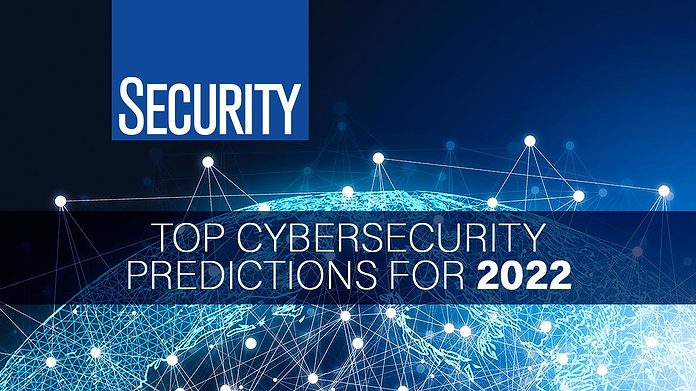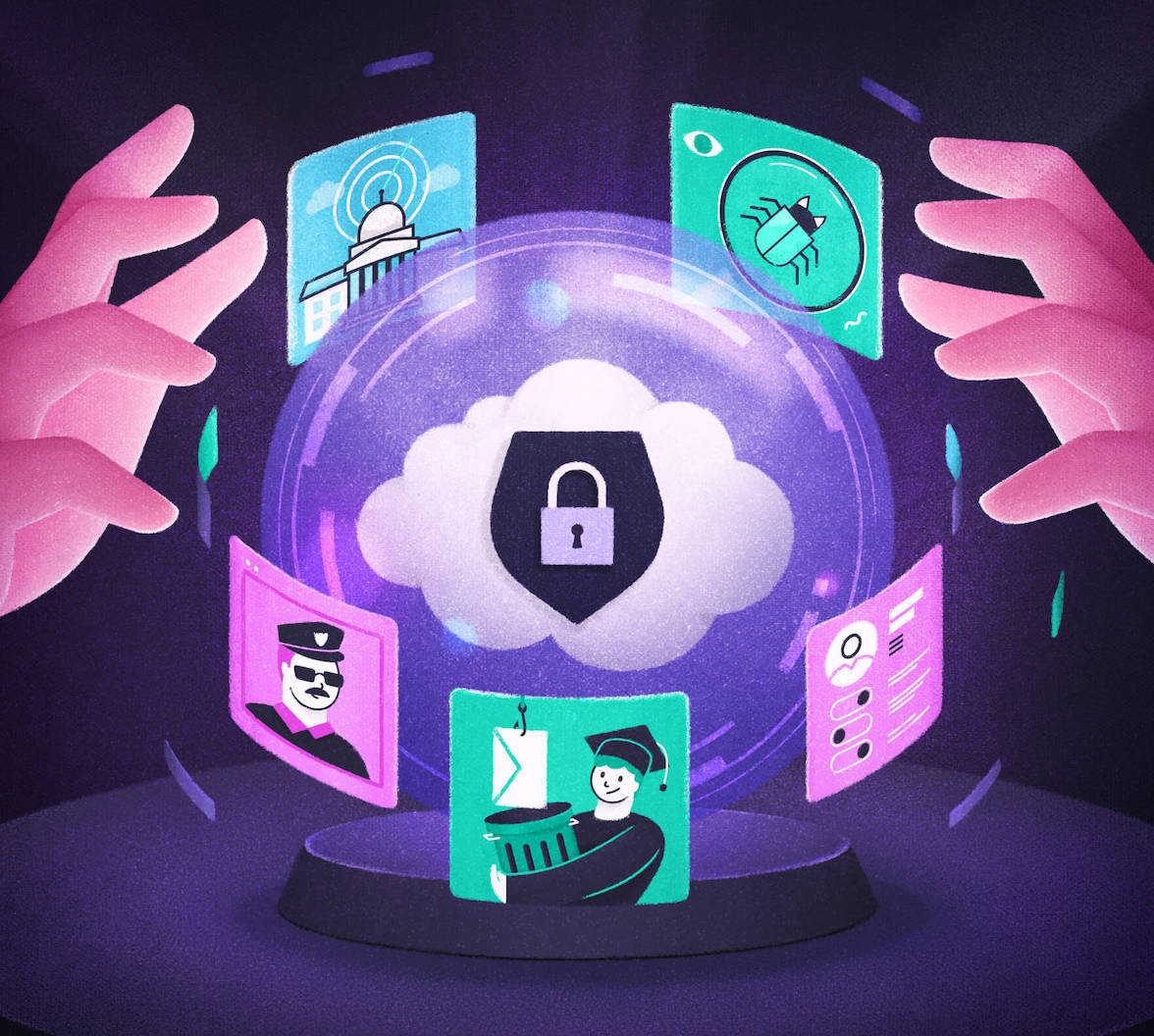Get insights into 7 Cybersecurity Predictions for 2025 to safeguard your data.
Wiki Article
The Next Frontier: Insightful Cybersecurity Forecasts for the Coming Year
As we approach the brand-new year, the cybersecurity landscape is on the edge of notable change. Secret aspects such as the assimilation of advanced AI innovations, the inescapable surge of innovative ransomware, and the tightening of data privacy policies are shaping the future of digital safety.Surge of AI in Cybersecurity
In the swiftly advancing landscape of cybersecurity, the integration of artificial intelligence (AI) is becoming a crucial pressure in boosting hazard discovery and response capabilities. AI technologies, such as artificial intelligence algorithms and deep knowing designs, are being progressively deployed to evaluate large amounts of data and determine patterns a sign of safety and security dangers. cybersecurity and privacy advisory. This allows organizations to proactively attend to vulnerabilities before they can be exploitedThe surge of AI in cybersecurity is specifically substantial in its capability to automate routine tasks, allowing human analysts to concentrate on even more complicated security issues. By leveraging AI, cybersecurity groups can reduce feedback times and boost the precision of hazard evaluations. AI systems can adapt and learn from brand-new hazards, constantly fine-tuning their discovery systems to remain ahead of malicious stars.
As cyber dangers become a lot more sophisticated, the demand for innovative services will drive more investment in AI technologies. This fad will likely cause the development of boosted safety and security devices that integrate anticipating analytics and real-time tracking, inevitably fortifying business defenses. The change towards AI-powered cybersecurity remedies represents not just a technical shift however a basic change in exactly how companies approach their safety and security approaches.
Increase in Ransomware Assaults
Ransomware strikes have ended up being a widespread threat in the cybersecurity landscape, targeting organizations of all dimensions and throughout various markets. As we progress into the coming year, it is anticipated that these assaults will certainly not just increase in frequency however additionally in sophistication. Cybercriminals are leveraging sophisticated techniques, consisting of making use of expert system and machine knowing, to bypass typical security steps and make use of susceptabilities within systems.The acceleration of ransomware strikes can be credited to a number of factors, consisting of the surge of remote work and the growing reliance on electronic services. Organizations are commonly not really prepared for the evolving risk landscape, leaving crucial facilities at risk to breaches. The monetary effects of ransomware are shocking, with business encountering significant ransom demands and prospective long-lasting operational interruptions.
Furthermore, the pattern of double extortion-- where opponents not just secure information however likewise threaten to leakage delicate info-- has gained grip, additionally pushing sufferers to follow needs. Consequently, services should prioritize durable cybersecurity procedures, including normal back-ups, worker training, and incident feedback preparation, to reduce the risks related to ransomware. Failure to do so could bring about ravaging consequences in the year in advance.
Development of Data Personal Privacy Regulations
The landscape of information personal privacy regulations is undertaking considerable transformation as federal governments and organizations respond to the boosting issues bordering individual data defense. Over the last few years, the application of comprehensive structures, such as the General Data Defense Guideline (GDPR) in Europe and the California Consumer Personal Privacy Act (CCPA) in the USA, has set a criterion for more stringent privacy laws. These guidelines emphasize customers' legal rights to control their data, mandating transparency and liability from organizations that gather and refine individual info.
Moreover, organizations will require to boost their conformity methods, spending in sophisticated innovations and training to protect sensitive details. The advancement of information privacy policies will not just influence exactly how services operate but additionally form consumer expectations, fostering a culture of trust fund and protection in the electronic landscape.
Growth of Remote Work Susceptabilities
As companies continue to embrace remote job, vulnerabilities in cybersecurity have increasingly involved the leading edge. The shift to adaptable job arrangements has actually revealed important gaps in security methods, especially as workers access delicate information from different locations and tools. This decentralized job environment develops an increased assault surface for cybercriminals, who exploit unsecured Wi-Fi networks and individual tools to infiltrate company systems.
To reduce these susceptabilities, organizations need to focus on extensive cybersecurity training and apply robust safety structures that encompass remote work circumstances. This consists of multi-factor authentication, routine system updates, and the facility of clear protocols for information accessibility and sharing. By dealing with these susceptabilities head-on, firms can foster a safer remote job environment while maintaining operational strength in the face of progressing cyber hazards.
Advancements in Risk Discovery Technologies


Positive danger discovery has actually come to be a keystone of contemporary cybersecurity techniques, reflecting the immediate requirement to neutralize progressively innovative cyber risks. As companies deal with go to this web-site an advancing landscape of vulnerabilities, advancements in danger discovery innovations are critical in mitigating dangers and boosting safety and security stances.
One noteworthy fad is the integration of expert system and equipment knowing right into hazard detection systems. These innovations make it possible for the analysis of huge quantities of data in real time, enabling for the recognition of anomalies and potentially harmful tasks that may avert typical security steps. In addition, behavior analytics are being implemented to establish standards for regular user activity, making it simpler to identify deviations a sign of a breach.
Additionally, the surge of automated hazard knowledge sharing systems facilitates collaborative defense efforts across industries. This real-time exchange of info improves situational understanding and speeds up action times to arising dangers.
As companies proceed to buy these innovative modern technologies, the performance of cyber defense reaction will substantially boost, encouraging protection groups to remain one step ahead of cybercriminals. Ultimately, these developments will play a vital role in forming the future landscape of cybersecurity.
Verdict
In recap, the approaching year is expected to witness transformative advancements in cybersecurity, driven by the combination of click reference AI technologies and a notable rise in ransomware assaults. In general, these evolving characteristics highlight the important significance of adapting to an ever-changing cybersecurity landscape.Report this wiki page